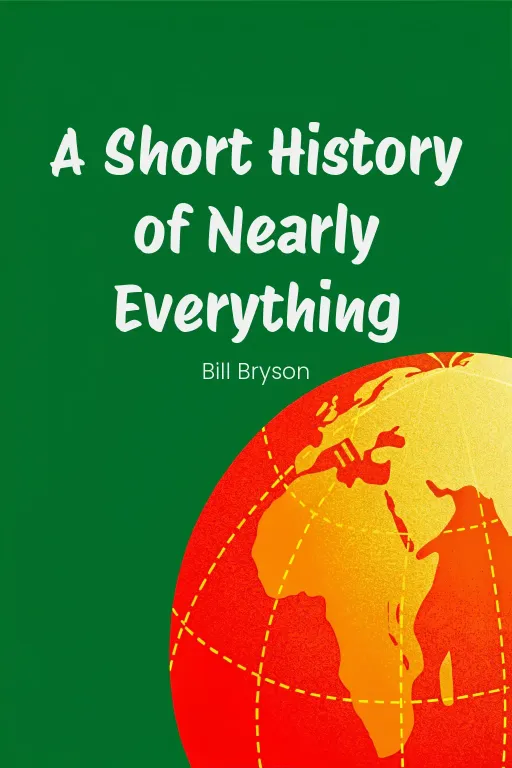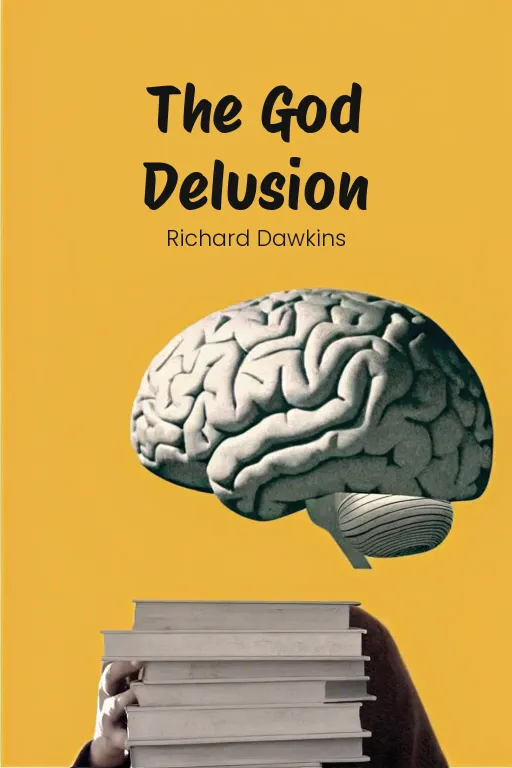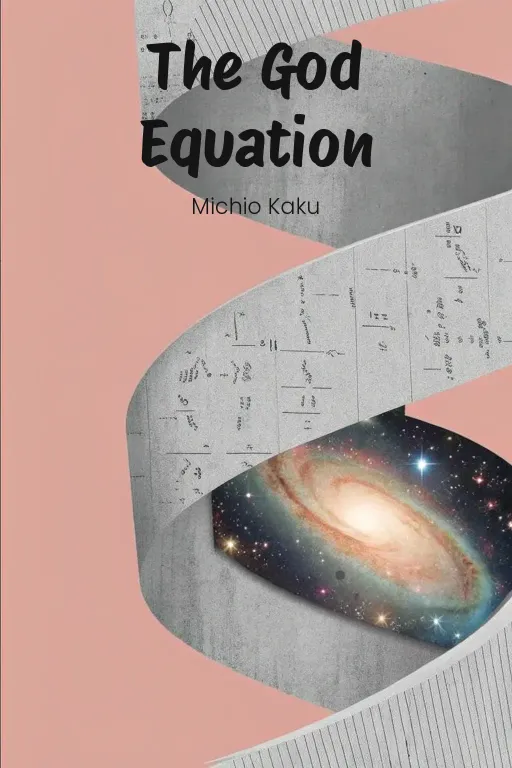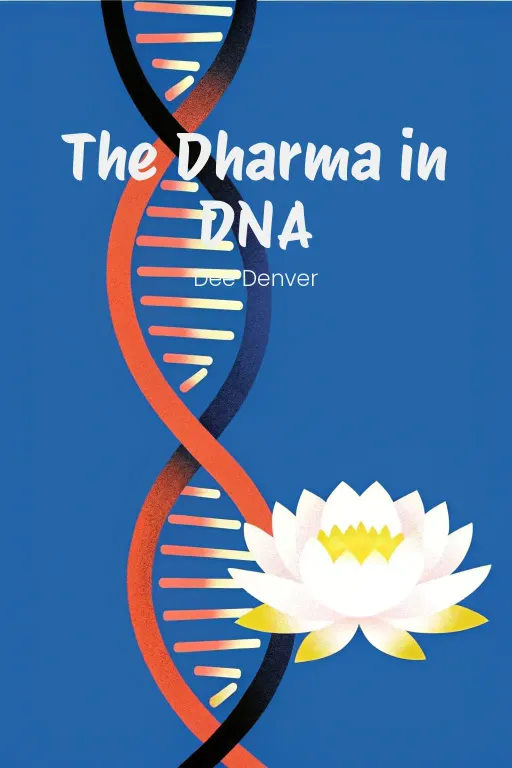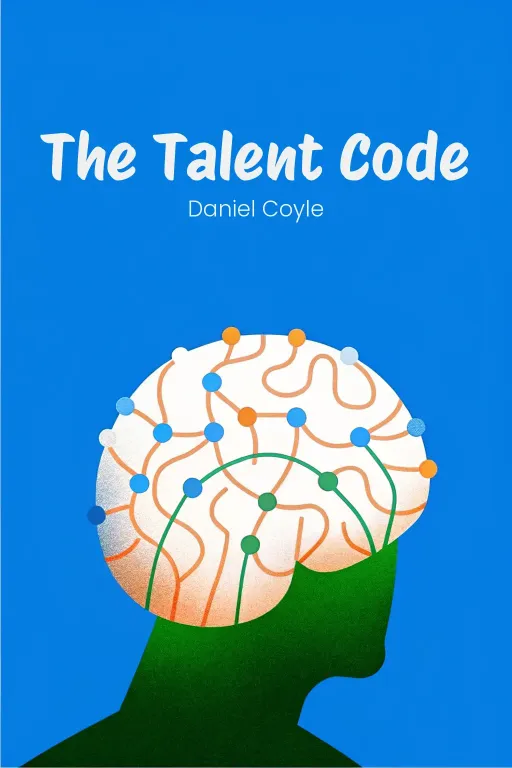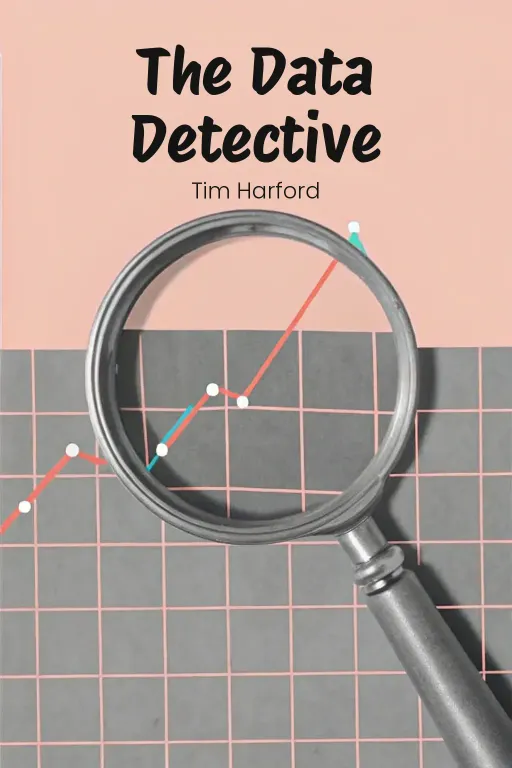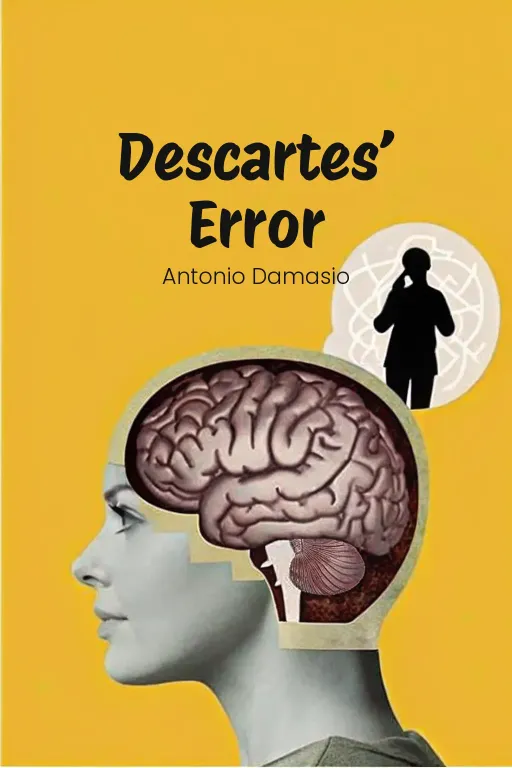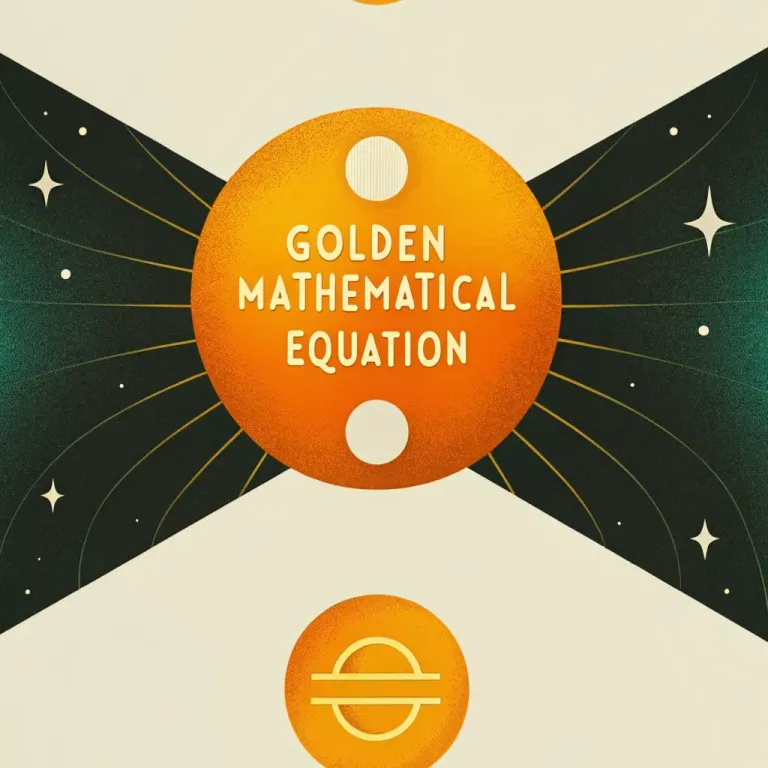
One Equation to Explain It All?
Podcast by Wired In with Josh and Drew
The Quest for a Theory of Everything
One Equation to Explain It All?
Part 1
Josh: Hey everyone, welcome back! Today, we're jumping into a seriously big question: Can “everything” in the universe – all of space, time, and existence – be explained with just one equation? Drew: Alright, Josh, before we get too deep, let me just ask: how often does the ultimate answer, the one that explains it all, actually fit on a single napkin, you know? Josh: Fair point. But that’s exactly the kind of grand idea Michio Kaku explores in his book, The God Equation: The Quest for a Theory of Everything. He explores humanity's search for a single principle that explains all of nature's forces, from ancient Greece to the latest in string theory. Drew: Yeah, it's not just equations and jargon, right? This book is a real journey through history, science, and even a little bit of philosophy. You're talking Einstein's relativity, dark matter mysteries, maybe even a peek into the multiverse. It’s quite a bit. Josh: Absolutely! And we're going to explore three main ideas from the book today. First, diving into the roots – how people have “always” tried to understand the cosmos. Think Aristotle, Newton, all the way up to Einstein. How did that pursuit evolve? Drew: Okay, then we hit my favorite part: the cold, hard truth. These modern theories – like string theory – sound incredible, but what about the actual “proof”? What are the experiments that are keeping these brilliant minds busy? Josh: Exactly. And then, finally, we zoom out and ask the really big questions. What does it “mean” for us if we find this "theory of everything?" What does it say about our lives, our purpose, our place in this gigantic universe? Drew: So, whether you're a science geek, a history buff, or just someone who likes to ponder the meaning of it all, we've got you covered. Let's dive in, shall we?
The Historical Quest for Unification
Part 2
Josh: Okay, let's set the scene. This desire to find a single principle explaining everything in nature? It's not a new thing. It goes way back. Think about ancient Greece. Philosophers like Pythagoras and Democritus were already asking, "What connects everything? What's the essence of existence?" Right? Drew: Exactly, and it's fascinating how even then, there were these two different approaches, right? Abstract versus material. Pythagoras, obsessed with harmony and math, basically said, "Hey, nature has a rhythm! Let's figure it out!" And then you've got Democritus going, "Nah, forget that. It's all just basic building blocks—atoms." Josh: Precisely. Pythagoras is so interesting because his numbers weren't just random. He saw a cosmic order in math. Discovering that harmonious sounds come from strings vibrating in simple ratios? That convinced him the universe ran on math too. He imagined a grand cosmic symphony, with planets and stars moving perfectly. Drew: Sure, it sounds lovely. But let's be real, he didn't have any proof, did he? It's like saying the universe likes Beethoven because it feels good. How much of that actually became science? Josh: Fair point. Pythagoras lacked the tools, but he planted an idea—thinking about order in the cosmos. His work set the stage for using math to understand reality. That was vital for later scientific breakthroughs. Drew: Okay, you got me there. And while Pythagoras was busy with his cosmic music, Democritus went the opposite way. He stripped everything down to basics, saying it's all made of invisible particles—atoms. Josh: Exactly! He figured these atoms were the fundamental building blocks. His ideas were rudimentary and speculative, more thought experiments than real science, but still, he was ahead of his time. Like, noticing wear and tear, a gold ring degrading. He thought tiny particles must be chipping away, little by little. Drew: But, uh, let's remember, Aristotle gave Democritus a hard time. Atomism was dismissed for ages because it wasn't measurable. Aristotle was like, "If you can't see it, don't bother." Sound familiar? Josh: It does. That skepticism foreshadowed today's debates, like with string theory, or the multiverse. But Democritus's ideas lived on, influencing modern atomic theory. He didn't have microscopes, but his thought process helped scientists like Dalton, Rutherford, and quantum physicists. Drew: So from Pythagoras' harmony to Democritus' atoms, we see this back-and-forth in the unification quest—big picture versus building blocks. And it all happened way before science, as we know it. No tests, no real equations—just bold ideas. Josh: Absolutely! And that leads us to the Scientific Revolution. That’s when things really take off, thanks to people like Galileo and Newton. Observation and experimentation started working with abstract reasoning. It was the dawn of modern science. Drew: And let's talk about Galileo for a second. He wasn't just casually stargazing, right? He used his telescope to basically demolish people's understanding of the universe. He saw moons orbiting Jupiter, and proved that Earth wasn't the center of everything. That questioned the old geocentric model and showed that celestial mechanics were predictable. Josh: Exactly! Galileo linked theory and observation, proving that data could challenge old ideas. Revolutionary! Suddenly, the universe wasn't just philosophy, but something measurable, observable. His work paved the way for Newton. Drew: Newton is where things “really” clicked, right? I mean, talk about big-picture unification! Galileo showed us how to look, and Newton showed us how to connect the dots. Gravity was his big thing—one force linking apples and planets, the everyday and the enormous. Josh: Newton's law of universal gravitation was epoch-making, no question. His equation, ( F = G \frac{m_1 m_2}{r^2} ), connected the motion of objects on Earth with what was happening in space. All masses exert gravity on each other. That ended the divide between Earth and the heavens. Suddenly, the universe was governed by universal laws. Drew: And, more importantly, he had the math to prove it. Right? Newton made physics a real science where you could predict stuff, create models, not just guess. But... let's be honest, even he didn't solve everything. Josh: No, he definitely didn't. But he set the foundation for centuries of progress. The things Newton didn't figure out, like light or “really” fast objects, would come back later with Einstein. But before we jump there, let's pause. By Newton's time, unification had gone from a philosopher's dream to real, methodical science.
Modern Challenges and String Theory
Part 3
Josh: So, all this history really sets us up for the modern unification challenges, especially the head-butting between quantum mechanics and general relativity. And that's where string theory comes in. It’s so ambitious; it's not just tweaking modern physics, it wants a complete architectural overhaul. Drew: Which sounds like renovating the house while we’re still living in it. Risky! But alright, let’s bite. String theory is a pretty big jump, right? From particles as these tiny points to these one-dimensional, vibrating strings. Josh, you’re the master of metaphors, what's that all about? Josh: Okay, picture this: Forget particles as tiny marbles. Think of them as minuscule violin strings. The way they vibrate? That defines what the particle is. Specific vibrations? That's an electron. Different vibration? Boom, a quark! It's like the universe is playing a cosmic instrument, and these strings are creating the notes of reality. Drew: Quantum jazz, huh? I like it. Elegant, sure, but why strings? Why this shift from points? What problem does a vibrating string solve that a tiny marble couldn’t? Josh: Good question. The big problem string theory tries to deal with is the clash between quantum mechanics—governing the super tiny, like atoms—and general relativity, which explains the super huge, like stars and spacetime. Each theory is brilliant in its own field, but try to combine them—black holes, the Big Bang—total meltdown. String theory? It blends gravity naturally with quantum mechanics because it sees them not as enemies, but as different vibes from the same strings. Drew: So, string theory is physics' couples therapy for quantum mechanics and general relativity. Got it. Dimension-wise, though, you said up to eleven dimensions? Eleven? I'm barely keeping it together with three! Explain that, please. Josh: Okay, think of our three dimensions—length, width, height—as the main stage for our lives. Time adds a fourth, the backdrop for everything. Now, string theory? It suggests extra spatial dimensions—maybe seven more—but they're rolled up super tiny, at the subatomic level, so we can't see them. Drew: Hidden pockets of space? Like secret compartments, huh? Josh: Exactly! Microscopic vision like Superman, and you’d see these extra dimensions curled up like origami at every point in space. They make the math work for string theory, but being invisible, well, that makes them hard to prove. Drew: "Hard to prove" might be the understatement of the century. Which leads to the question: where’s the proof? We can't test for strings directly, they’re supposedly smaller than the Planck length, so tiny it makes atoms look huge. Josh: True. It's a major criticism of string theory. To see the strings, the energy levels needed are way beyond what the Large Hadron Collider can do. But, physicists are exploring indirect ways. Drew: Gravitons, I'm guessing? The gravity particles that string theory says exist? Josh: Spot on! String theory predicts gravitons, which would bridge quantum mechanics and gravity. Here's the thing. Gravitons interact so weakly with matter. So to catch one? Like catching a whisper at a rock concert. Today's methods are stuck—almost physically impossible with what we have. Drew: And yet, people are still throwing resources at this idea. Why? Is it just because it's pretty? Josh: Partially, sure. There's a long history of pursuing elegance in science. Einstein’s equations are mathematically beautiful. But string theory has the potential to explain things we otherwise can’t. Drew: Like multiverses, right? Josh: Absolutely. String theory doesn't just explain our universe. It suggests ours might be one of many. Think of a library of universes, each with its own laws. Physicists call it the "landscape problem," predicting nearly infinite universes—like 10 to the 500th power. Thrilling, but unsettling. Drew: "Unsettling" is one way to put it. So many universes, all with different rules, does that make string theory less definitive about our universe? Less of a "theory of everything" and more of a "theory of anything?" Josh: Critics do have a point there. They say string theory is in danger of becoming unscientific. If every outcome exists in some universe, what can it really predict? How do we test which universe we're in? Drew: We're getting into the deep end now. Which brings us to Sabine Hossenfelder. She loves calling out the field for chasing the “shiny” over the substantial. Josh: She's right to push back. Hossenfelder says string theory's focus on elegance could lead physicists down a dead end. She says not to put aesthetics before proof using Kepler’s obsession with circular orbits as her warning. Where beauty misled us. Drew: Kepler wasted years jamming the planets into perfect circles before figuring out they move in ellipses. Lesson learned: reality doesn’t care about symmetry, or vibrating strings either, for that matter. Josh: True, but string theorists aren't giving up. They're shifting from seeing to sensing such as studying tiny cosmic microwave background changes or analyzing gravitational waves for signs of extra dimensions. Drew: Good, but still no "aha!" moment, that slam-dunk proof that screams, "Strings are real!" Until then, string theory might stay theoretical—a mathematical artwork, but not quite science yet. Josh: That’s the tough spot where string theory stands. It's a bold, elegant attempt to piece together all of nature's forces, but still needs that key moment of proof.
Philosophical and Existential Implications
Part 4
Josh: So, while string theory gives us this elegant framework, it's kind of stuck in experimental limbo, right? Which then begs the question, what do we do if we don’t just study the universe but really reflect on what it all “means”? Drew: Exactly! This whole "theory of everything" thing isn’t just about unifying physical laws. It really forces us to confront questions about, you know, where we came from, the meaning of it all, and basically, what existence even “is”. It’s like, the deeper we go into physics, the closer we are to philosophy, and even, dare I say, spirituality. Josh: Precisely. It’s like, where did everything come from, right? And if we explore theories like the multiverse or quantum origins, does that really answer anything, or does it just push the question further back? Drew: Right? Let's talk about the Big Bang. It's kind of a pivotal moment in this story. I mean, physics can reconstruct the universe's timeline back, what, 13.8 billion years? All the way to that initial flash. But then you ask, what was before the Big Bang? And physics just… stops. Josh: Yeah, and of course, that’s where these big, speculative ideas come in, like inflation, quantum fluctuations, the multiverse... But none of that really gets at the cause, does it? Is it even fair to ask, why did it all begin? Drew: Fair question, absolutely. And that brings in the whole philosophical idea of the "First Cause," right? Thinkers like Aquinas talked about this chain of causation that leads to an "unmoved mover," some uncaused origin. So, in modern terms, what set the laws of physics into motion? Even if we talk about quantum foam or spacetime fluctuations, we're just kind of shifting the mystery, not solving it. Josh: That's so true, absolutely. And it's fascinating, because Hawking's description of quantum fluctuations sounds almost magical—something coming from "nothing." But is "nothing" really nothing? Or is it just a placeholder for things we don't understand yet? Drew: Exactly! Quantum mechanics introduces "nothingness" as almost like a bustling energy field, this spacetime foam where particles pop in and out. But then, what underpins even that foam? You see, it all comes back to that really deep philosophical problem: the foundation of reality itself. Josh: Okay, so, science can tell us a lot about how things happen, but it’s not really equipped to handle the big why, is it? And that’s where black holes come in, because they seem to force even physicists to kind of confront the outer edges of reality. Drew: Black holes are wild. I mean, these regions of spacetime where gravity is so intense that not even light can escape…they're like physical paradoxes. And then Stephen Hawking came along and took the debate further, suggesting they emit this faint radiation that makes them slowly evaporate. Josh: So, something that seemed like the ultimate dead end—where information goes to die—actually whispers secrets back to the universe through Hawking radiation? That’s kind of poetic, isn't it? Drew: Totally, but it led to something even more troubling: the information paradox. Quantum mechanics says information can't be truly lost. But if black holes wipe out the information of whatever falls in, that breaks the fundamental rules of physics. So, this paradox makes us rethink reality, doesn't it? Josh: And isn't that a bit…existential? If pieces of the universe's history are just vanishing into black holes, does that mean meaning itself is transient? That it can just disappear? Drew: Well, I guess one way to look at it is that. But, there are those who think the universe is self-consistent in ways we don't get yet. Hawking himself, he later changed his mind, suggesting black holes might encode that lost information on their surface—the event horizon—and release it through radiation. Though, we still don’t have a definite answer. Josh: So, basically, black holes turn physics into philosophy. Even figuring out if the rules are consistent becomes an argument about meaning and permanence. And since we’re talking cosmic mysteries, let’s talk about the multiverse, because that takes existential implications to a whole new level. Drew: The multiverse is mind-bending. If string theory is right, our universe is just one bubble in a sea of universes, each with potentially different physical laws. Which then opens up a can of worms about randomness and fine-tuning. I mean, why does our universe have the constants it does, the ones that allow stars, planets, and life to even “exist”? Josh: Well, some say it's just chance, like rolling cosmic dice. Others see this fine-tuning as evidence “for” a designer, which is a difficult idea for science. But if there are infinite universes, isn’t one like ours kind of inevitable? Drew: Theoretically, yeah, maybe. I guess in a multiverse, the delicate balance we see in our universe might not be special, it’s just one outcome in an infinite range of possibilities. But then some critics say that this runs the risk of being metaphysics since we can't really test it. Josh: True, that's a challenge string theorists face. But what's so fascinating is how this debate echoes Einstein's idea of the "intelligibility" of the universe. He was amazed by how the cosmos seems understandable, ruled by harmonious laws. And some would say that that reflects deeper truths about our place in reality, even if we haven’t discovered these truths yet. Drew: Okay, and then there's consciousness, the wild card in any discussion about meaning. Because, without conscious observers, aren't all these equations, theories, and universes kind of pointless? Josh: Definitely, consciousness is its own frontier. Quantum physics famously ties observation to reality through the measurement problem, where particles exist in a state of limbo until they are measured. And then some interpretations suggest between consciousness and collapsing these quantum possibilities. But we’re entering a very speculative area here. Drew: Still, though, it asks the question: Are we really just passive spectators in this cosmic play, or does our presence, as conscious beings, shape the story? Josh: Exactly! And beyond that, we just have to wonder why we care? Why do humans even strive for meaning, through science, spirituality, or art? Maybe, as Michio Kaku suggests, it emerges from asking questions—cultivating purpose through seeking to understand. Drew: I don't disagree with that at all. There's something inherently human about gazing up at the night sky and wondering what connects us to the stars. And even if science doesn’t give us all the answers, maybe the search is the point. Josh: Exactly. That’s so perfectly said. The quest for the "theory of everything" may never actually end with a formula. But in looking for that ultimate understanding, we learn so much about ourselves along the way.
Conclusion
Part 5
Josh: Wow, today's been quite a ride, hasn't it? We've gone from ancient thinkers like Pythagoras and Democritus, all the way through Newton’s big breakthrough, to the mind-bending stuff like string theory and the multiverse. Drew: Yeah, and what's fascinating is that this whole unification thing isn't just about complicated equations. It's about trying to connect the tiniest bits of reality with the vastness of space and time. It's about linking quantum mechanics with relativity, and maybe even getting to the bottom of why we're all here. Josh: Exactly! For me, the most amazing thing is how this goes beyond just physics. It's like a bridge between science and philosophy, a real conversation about who we are and why anything exists at all. Drew: Right. And whether string theory pans out or not, the cool thing is, you know, humanity's just got this inherent need to understand everything. That drive itself might be just as important as any answers we actually find. Josh: Totally. So, here’s a thought: What if understanding the universe isn’t about finding some final answer, but about enjoying the endless possibilities of discovering? Each question just leads to another one, and maybe that’s what's so beautiful about science. Drew: So, keep asking those big questions, even if the answers aren’t easy. I mean, the universe isn't exactly giving us a cheat sheet, is it? Josh: Thanks for joining us on this cosmic journey. Until next time, keep that curiosity burning and keep looking up! Drew: And maybe keep a notebook handy for all those brilliant theories you're bound to come up with. Take it easy, everyone.
